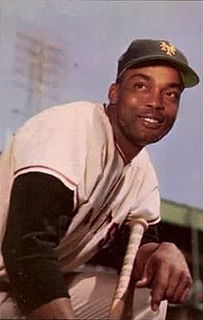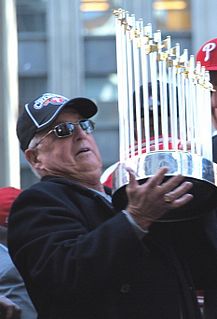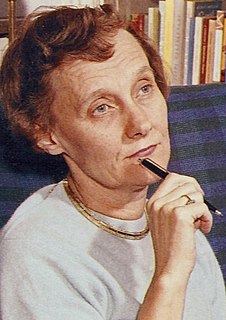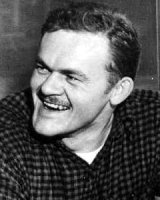A Quote by John Connolly
The Detective was different. Not that he wasn't a good man; Willie had heard enough about him to understand that he was the kind who didn't like to turn away from another's pain, the kind who couldn't put a pillow over his ears to drown out the cries of strangers. Those scars he had were badges of courage, and Willie knew that there were others hidden beneath his clothes, and still more deep inside, right beneath the skin and down to the soul. No, it was just that whatever goodness was there coexisted with rage and grief and loss.
Quote Topics
About
Another
Away
Badges
Beneath
Clothes
Courage
Deep
Deep Inside
Detective
Different
Down
Drown
Ears
Enough
Good
Good Man
Goodness
Grief
Grief And Loss
Had
Heard
Hidden
Him
His
Inside
Just
Kind
Knew
Like
Loss
Man
More
Others
Out
Over
Pain
Pillow
Put
Rage
Right
Scars
Skin
Soul
Still
Strangers
Those
Turn
Understand
Were
Whatever
Related Quotes
I learned that just beneath the surface there's another world, and still different worlds as you dig deeper. I knew it as a kid, but I couldn't find the proof. It was just a kind of feeling. There is goodness in blue skies and flowers, but another force - a wild pain and decay - also accompanies everything.
The brown blotches of the benevolent skin cancer the sun brings from its reflection on the tropic sea were on his cheeks. The blotches ran well down the sides of his face and his hands had the deep-creased scars from handling heavy fish on the cords. But none of these scars were fresh. They were as old as erosions in a fishless desert.
He gazed up at the enormous face. Forty years it had taken him to learn what kind of smile was hidden beneath the dark moustache. O cruel, needless misunderstanding! O stubborn, self-willed exile from the loving breast! Two gin-scented tears trickled down the sides of his nose. But it was all right, everything was all right, the struggle was finished. He had won the victory over himself. He loved Big Brother
There is a kind of grandeur and respect which the meanest and most insignificant part of mankind endeavor to procure in the little circle of their friends and acquaintance. The poorest mechanic, nay, the man who lives upon common alms, gets him his set of admirers, and delights in that superiority which he enjoys over those who are in some respects beneath him. This ambition, which is natural to the soul of man, might, methinks, receive a very happy turn; and, if it were rightly directed, contribute as much to a person's advantage, as it generally does to his uneasiness and disquiet.
Leo Durocher was our manager and he brought Willie up to me and said, 'This is Willie Mays and he's your new roommate.' You could see right away that this young man was a natural. He had those real big hands, great power and speed and would catch everything hit in his direction. He's the best center fielder that ever lived, no question.
I call it "being interrupted by success." We had done The Soft Bulletin, which came out in 1999, and we knew we that were gonna make another record before too long. But in between this, we were still in this mode of kind of just - not re-creating what we could be, but kind of doing different things. For the longest time in the Flaming Lips we were like, "Make a record, go on tour. Come back, make another record," and you know, I think, frankly, we were kind of like, "There's more to life than just recording records and going on tour."
Shadowfax tossed his head and cried aloud, as if a trumpet had summoned him to battle. Then he sprang forward. Fire flew from his feet; night rushed over him. As he fell slowly into sleep, Pippin had a strange feeling: he and Gandalf were still as stone, seated upon the statue of a running horse, while the world rolled away beneath his feet with a great noise of wind.
Oscar Charleston was the Willie Mays of his day. Nobody ever played center field better than Willie Mays. Suppose they had never given Willie a chance, and we said that, would anybody believe there was a kid in Alabama who was that good? Or there was a black guy in Atlanta who might break Babe Ruth's home run record? No.
At least, not in this country,' she added after a moment's thought. 'In China it's a little different. Once I saw a Chinaman in Shanghai. His ears were so big he could use them for a raincoat. When it rained, he just crept in under his ears and was warm and snug as could be. Not that the ears had such a rattling good time of it, you understand. If it was specially bad weather, he'd invite friends and acquaintances to pitch camp under his ears too. There they sat, singing their sorrowful songs while it poured down outside.
Tessa had lain down beside him and slid her arm beneath his head, and put her head on his chest,listening to the ever-weakening beat of his heart. And in the shadows they'd whispered, reminding each other of the stories only they knew. Of the girl who had hit over the head with a water jug the boy who had come to rescue her, and how he had fallen in love with her in that instant. Of a ballroom and a balcony and the moon sailing like a ship untethered through the sky. Of the flutter of the wings of the clockwork Angel. Of holy water and blood.
Pain! Deep, tearing, throbbing, needle-sharp, hammer-blunt pain – ripping through his body and through his mind, twisting deep in his guts and slicing at his skin with razors and broken glass. Oskan wanted to scream, but his vocal cords had burned away. He was desperate for water and he could hear it dripping all around him, but his charred tongue found nothing in his mouth but blisters and scorched flesh. For hours he lay on the ropes of the low bed, unable to move, the pressure of the hemp on his destroyed skin sending new agonies deep into his body.
He knew how to handle pain. You had to lie down with pain, not draw back away from it. You let yourself sort of move around the outside edge of pain like with cold water until you finally got up your nerve to take yourself in hand. Then you took a deep breath and dove in and let yourself sink down it clear to the bottom. And after you had been down inside pain a while you found that like with cold water it was not nearly as cold as you had thought it was when your muscles were cringing themselves away from the outside edge of it as you moved around it trying to get up your nerve. He knew pain.
A voice had begun to sing. It was very far away and Digory found it hard to decide from what direction it was coming. Sometimes it seemed to come from all directions at once. Sometimes he almost thought it was coming out of the earth beneath them. Its lower notes were deep enough to be the voice of the earth herself. There were no words. It was hardly a tune. But it was beyond comparison, the most beautiful sound he had ever heard.
A rich man's body is like a premium cotton pillow, white and soft and blank. ''Ours'' is different. My father's spine was a knotted rope, the kind that women use in villages to pull water from wells; the clavicle curved around his neck in high relief, like a dog's collar; cuts and nicks and scars, like little whip marks in his flesh, ran down his chest and waist, reaching down below his hip bones into his buttocks. The story of a poor man's life is written on his body, in a sharp pen.




































